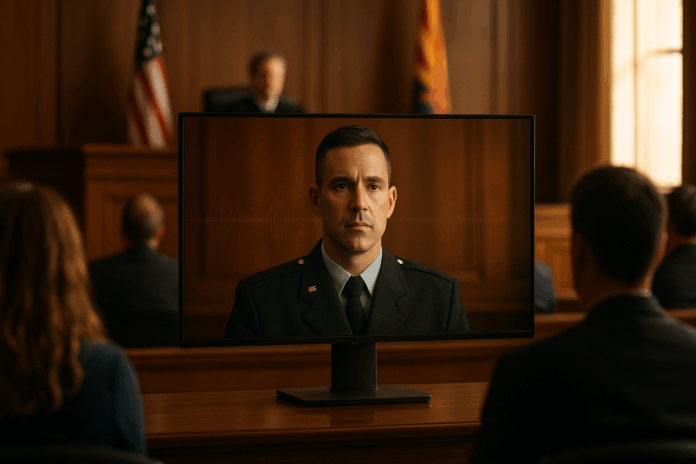
What jumped out at me
- A first-of-its-kind moment — a four-minute AI “avatar” of the deceased spoke in a Phoenix courtroom, turning a routine sentencing into a live ethics lab.
- The defense says the video nudged the judge toward a tougher outcome despite no filed aggravators — a potential appellate flashpoint.
- Victims’ rights law is broad onhow a victim can be heard, but AI raises a new question — who gets to put words in the mouth of the dead, and with what safeguards.
By Samuel Lopez — USA Herald
Phoenix, AZ (August 23, 2025) — On May 1, more than twenty people filed into a Maricopa County courtroom for the sentencing of Gabriel Paul Horcasitas, 54, convicted of manslaughter in the 2021 road-rage killing of U.S. Army veteran Christopher Pelkey, 37. As family photos played on a screen, ten speakers gave traditional victim impact statements. Then Pelkey’s sister, Stacey Wales, did something no one in that room had seen before: she pressed play on a nearly four-minute AI-generated video that used Pelkey’s photo and voice profile to deliver words she had written — explicitly introduced as a digital recreation.
The room went quiet. A few people cried. Defense attorney Jason Lamm later admitted his first reaction was, “Is this really happening?” He didn’t object in the moment. He does now believe it lengthened his client’s sentence.
Judge Todd Lang imposed 10½ years for manslaughter — within Arizona’s seven-to-twenty-one-year range — plus a concurrent term for a related endangerment count. Lamm’s frustration isn’t about the existence of victim impact statements; it’s about how this one functioned. Arizona prosecutors hadn’t filed aggravating factors. Under Arizona law, victim comments can be considered, but not as aggravators without proper notice. If the court effectively let the avatar’s sentiments substitute for aggravation, that’s the kernel of the defense’s appellate theory.
“As much as we like to think decisions are purely rational, a lot of sentencing is emotional,” a public defender told me. That’s not cynicism; it’s cognitive science colliding with criminal procedure.


